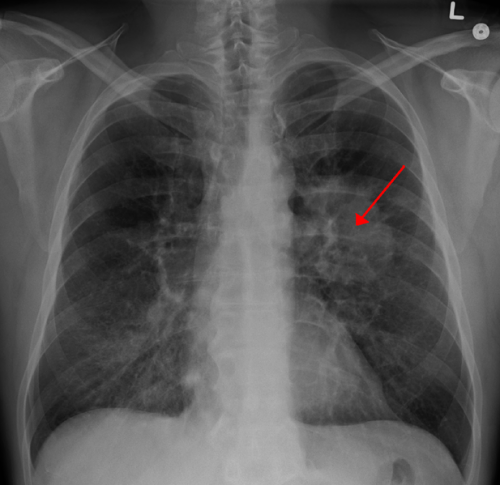accutane skin

Two presentations from the ADAURA clinical trial advanced previous research that demonstrated improved disease-fee survival (DFS) outcomes for patients with surgically resected non-small cell lung cancer (NSCLC) receiving osimertinib. The data were reported today at the International Association for the Study of Lung Cancer’s 2020 World Conference on Lung Cancer (WCLC) Singapore.
Osimertinib is a third-generation, irreversible, central nervous system-active, epidermal growth factor receptor (EGFR)-tyrosine kinase inhibitor. ADAURA is a randomized Phase III trial comparing adjuvant osimertinib with placebo in patients with surgically resected stage IB to IIIA (AJCC 7th edition; pathologic stage) NSCLC that harbors an activating EGFR mutation with either an exon 19 deletion or exon 21 L858R substitution. Postoperative chemotherapy was allowed, lamisil terbinafine per physician and patient choice. Adult patients were randomized 1:1 and treated with osimertinib 80 mg once-daily oral tablets or placebo for three years or until disease recurrence.
In one analysis (Abstract 3505), presented by Dr. Margarita Majem, Department of Medical Oncology at the Hospital de la Santa Creu i Sant Pau, Barcelona, Spain, adjuvant osimertinib, with or without prior adjuvant chemotherapy, provided a significant DFS benefit without affecting health-related quality of life (HRQoL), a secondary endpoint of the study, in completely resected and disease-free patients with stage IB-IIIA EGFRm NSCLC.
HRQoL was assessed with the short form-36 (SF-36) health survey, which consisted of eight domains and two aggregated summary scores, physical [PCS] and mental [MCS] component summary, and was completed by patients at randomization, 12 and 24 weeks, then every 24 weeks until treatment completion or discontinuation.
The SF-36 T-scoring system assesses different physical and mental health parameters. Higher T-scores indicate better health. Survey compliance was high, at <85% among both treatment and placebo arms.
Analysis of the survey data showed that patients treated with adjuvant osimertinib maintained their quality of life, with no clinically meaningful differences in the physical or mental health scores between the osimertinib and placebo arms (PCS -1.18 [95% CI: -2.02, -0.34]; MCS -1.34 [95% CI: -2.40, -0.28]. There were no differences in time to deterioration (TTD) of PCS (HR: 1.17) or MCS (HR: 0.98).
“The effect of adjuvant treatment on health-related quality of life is an important clinical consideration for patients who, following surgery with curative intent, are disease-free and require long-term treatment to reduce the risk of disease recurrence,” Dr. Majem said.
In the next trial (Abstract 3464), Dr. Yi-Long Wu, one of the WCLC co-chairs and of Guangdong Lung Cancer Institute, Guangdong Provincial People’s Hospital & Guangdong Academy of Medical Sciences, Guangzhou/China, presented data that adjuvant osimertinib demonstrated a highly statistically significant improvement in DFS vs placebo in patients with resected stage IB-IIIA EGFRm NSCLC. Quality of life was maintained during osimertinib treatment, with no clinically meaningful differences observed between arms.
Dr. Wu and colleagues randomly assigned patients with resected stage IB-IIIA (AJCC 7th edition; pathologic stage) EGFR-mutated NSCLC to receive 80 mg of daily osimertinib or to placebo for three years (study completion) or until disease recurrence. Disease staging was based on electronic case report forms for baseline characteristics data, and interactive voice response system (IVRS) for efficacy data (per statistical analysis plan).
In ADAURA, 60% (410/682) of all patients randomly assigned received adjuvant chemotherapy for a median duration of 4.0 (Q1: 4.0, Q3: 4.0) cycles, balanced across treatment arms. Overall, 409 patients received platinum-based chemotherapy, most with stage IIIIIA (II: 71% [165/231]; IIIA: 80% [187/235]), and fewer with stage IB (26% [57/216]), disease. Across disease stages, the overall proportion of patients who received chemotherapy was 66% in patients aged younger than 70 (338/509), compared with 42% (72/173) in patients aged 70 or older, reducing to 27% (21/78) in patients aged 75 or older.
The group that received chemotherapy (n = 230) experienced 22 DFS events (11%), and the placebo group (n = 207) experienced 103 DFS events (50%). The treatment arm that received osimertinib without chemotherapy (n = 136) experienced 15 DFS events or 11% while the placebo group that did not receive chemotherapy experienced 56 DFS events or 40% rate.
Dr. Wu reported that DFS benefit with osimertinib vs placebo for patients who received prior chemotherapy was similar to that for patients who had not received prior chemotherapy, regardless of disease stage.
Source: Read Full Article
